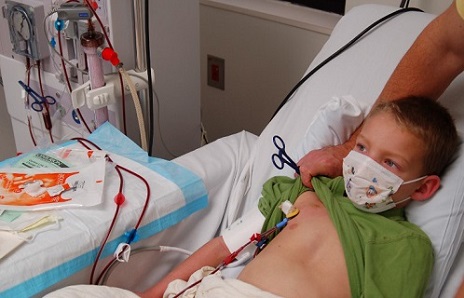More Than One Third Of Children Who Had Post-COVID-19 Multisystem Inflammatory Syndrome Developed Acute Kidney Injury!
Nikhil Prasad Fact checked by:Thailand Medical News Team Feb 08, 2024 2 years, 1 week, 22 hours, 24 minutes ago
COVID-19 News: The global impact of the coronavirus disease-2 (COVID-19) caused by severe acute respiratory syndrome coronavirus-2 (SARS-CoV-2) has significantly affected individuals' well-being since late 2019. Over time, the pathophysiology of COVID-19 and its associated complications, including multisystem inflammatory syndrome in children (MIS-C), have become increasingly apparent. MIS-C, characterized by persistent fever, inflammatory markers, and multiorgan involvement, has been a cause for concern since its initial description in April 2020.
 More Than One Third Of Children Who Had Post-COVID-19
More Than One Third Of Children Who Had Post-COVID-19
Multisystem Inflammatory Syndrome Developed Acute Kidney Injury
Background and Objectives
This retrospective study covered in this
COVID-19 News report, conducted at Mansoura University in Egypt, aimed to provide insights into the prevalence, severity, management, and outcomes of acute kidney injury (AKI) in children with MIS-C post-COVID-19 infection. The research spanned from March 2021 to June 2023, involving 655 confirmed COVID-19 cases, with 138 (21%) diagnosed with MIS-C. Among them, 51 patients developed AKI, with 42 included in the analysis. The study focused on evaluating AKI incidence, risk factors, mortality rates, and the necessity for renal replacement therapy (KRT).
Epidemiology of AKI in MIS-C
The incidence of AKI in children with COVID-19 infection has shown considerable variability in previous studies, with reports ranging from 5% to 44%. In the present study, 37% of patients with MIS-C-related COVID-19 developed AKI, constituting 7.8% of the total COVID-19 cases admitted during the study period. This variability can be attributed to differences in AKI definitions, hospitalization rates, comorbid factors, and the prevalence of MIS-C cases.
Pathophysiology of AKI in MIS-C
The multifactorial nature of AKI in SARS-CoV-2 patients involves factors such as dehydration, poor cardiac output, cytokine storm, and microvascular thrombosis. However, in MIS-C patients, renal hypoperfusion emerges as a major contributing factor, leading to longer ICU stays, increased susceptibility to hypoxemia, and higher requirements for inotropic support.
Clinical Presentation and Comorbidities
Fever and dyspnea were identified as the most common presenting features in AKI patients with MIS-C. Additionally, more than 30% of patients with stage 3 AKI required oxygen therapy, while 50% needed invasive mechanical ventilation, suggesting a potential link between hypoxemia and AKI pathogenesis.
Comorbidities, such as pulmonary, neurological, and malignancies, were prevalent among AKI patients, highlighting the association between underlying health conditions and the severity of AKI.
Laboratory and Pathological Findings
Laboratory parameters, including white blood cell count, erythrocyte sedimentation rate, serum ferritin, and creat
inine on admission, were significantly higher in stage 3 AKI patients. Kidney biopsies, performed in three cases, demonstrated a range of pathological findings associated with COVID-19 infection, further emphasizing the complexity of renal involvement in MIS-C.
Management and Outcomes
Hemodialysis was initiated in five stage 3 AKI patients, with a mean duration of PICU stay of 9.9 days. Unfortunately, continuous renal replacement therapy (CRRT) was not available at the institution during the study period. Despite the severity of AKI, only two mortalities (4.8%) were reported, underscoring the importance of early recognition and prompt management in improving overall outcomes. No residual renal impairment was reported at discharge for patients with previously normal kidney function.
Conclusion
This comprehensive analysis highlights that more than one-third of children with MIS-C develop AKI, emphasizing the need for vigilance in managing renal complications. The study underscores the significance of avoiding nephrotoxic drugs, early recognition, and prompt management of AKI, including timely initiation of dialysis in MIS-C cases, to achieve favorable outcomes. The findings contribute valuable insights into the epidemiology and outcomes of AKI in Egyptian children with MIS-C-related COVID-19 infection, paving the way for further research and improvements in clinical management strategies.
The study findings were published in the peer reviewed Italian Journal of Pediatrics.
https://ijponline.biomedcentral.com/articles/10.1186/s13052-024-01598-w
For the latest
COVID-19 News, keep on logging to Thailand Medical News.
